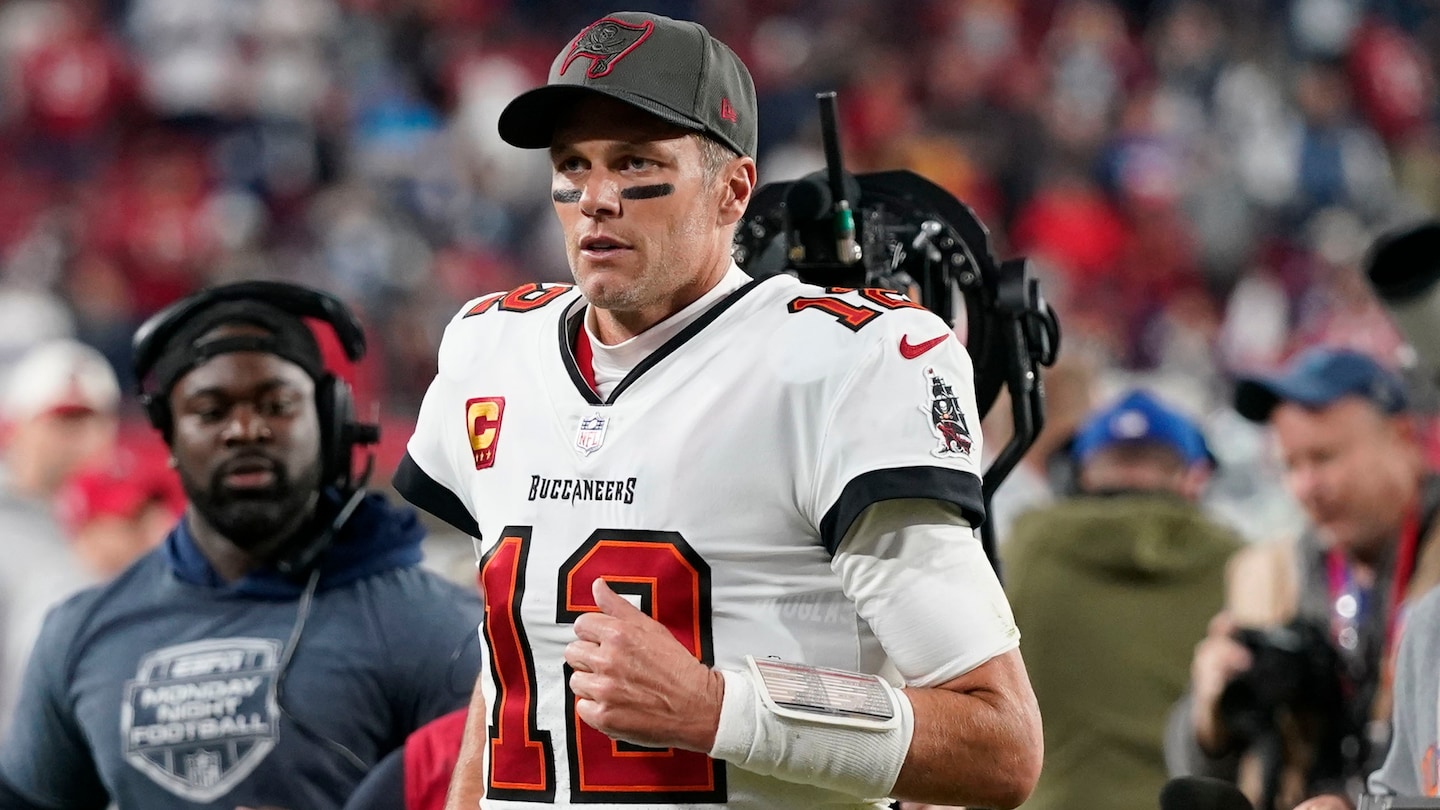The owners on the NFL’s finance committee previously raised issues related to economic aspects of the proposed deal. In addition, some owners have concerns about conflicts of interest arising from Brady holding an ownership stake in the Raiders while serving as an analyst on broadcasts of NFL games for Fox, according to one of the people with knowledge of the deliberations and two others familiar with the owners’ views.
Brady’s ownership deal must be approved by at least 24 of the 32 owners. The owners generally follow the recommendation of the finance committee.
“The matter remains under review by the finance committee,” NFL spokesman Brian McCarthy said Tuesday.
Brady’s discussions with the Raiders have been taking place for at least 10 months, and one person familiar with the matter said recently that it might be “about time to fish or cut bait.” After next week’s gathering in Orlando, the owners’ next meeting is scheduled for May in Nashville.
Brady and Tom Wagner, the co-founder of Knighthead Capital Management, are believed to be attempting to purchase approximately 10 percent of the Raiders. The franchise is worth an estimated $6.2 billion, according to last year’s NFL team valuations by Forbes.
Minority ownership shares of a sports franchise typically are sold at a discount from the applicable percentage of the team’s full value, given that limited partners usually have little to no say over major operational decisions. Even so, the finance committee raised concerns last year about the discounted price that Davis was offering Brady, three people familiar with the deliberations over the transaction said then.
Brady and Wagner reportedly have attempted to address the financial aspects of the deal that were slowing the ratification process. It’s not clear whether the finance committee is satisfied with those efforts.
Brady, 46, is one season into retirement as a player. He is expected to begin his broadcasting work with Fox next season. One of the people with knowledge of the owners’ concerns about Brady’s dual role said recently that some owners might be reluctant to allow Brady, if he is a part owner of the Raiders, into their training facilities or onto their practice fields as part of his broadcast preparations.
It is not clear whether conflict-of-interest concerns would be enough to halt Brady’s bid for Raiders ownership if the economic aspects of the deal reach a point at which they satisfy the finance committee.
The owners are scheduled to meet beginning Sunday.
They are not likely to vote at this meeting, two people familiar with the matter said Tuesday, on the possibility of allowing limited investments into NFL franchises by private equity firms.
The NFL formed a committee last year to “address all aspects of ownership policy” and consider changes to the current set of ownership rules. That committee was formed in the aftermath of the owners voting unanimously in July to approve the sale of the Washington Commanders from Daniel Snyder to a group led by Josh Harris for $6.05 billion.
The NFL’s ownership rules are widely regarded as being the most restrictive in pro sports. They require the lead investor of an ownership group to have at least a 30 percent equity stake in the purchase. No ownership group can exceed 25 people, including the lead investor. The group cannot borrow more than $1.2 billion to buy the team. No private equity firms, public corporations or sovereign wealth funds can own shares.
The owners are likely to deliberate in the coming months over adjusting the 30 percent requirement, allowing more investors, further increasing the debt limit and perhaps allowing limited investments by private equity. But the vote on private equity, at least, is not expected to occur in Orlando.
The owners are expected to consider proposals that include a new kickoff model, a potential ban of the hip-drop tackle and a variety of measures proposed by individual teams. Some of those rules deliberations could carry over to the May meeting.


 Best Underground Water Leak Detection Equipment 2024
Best Underground Water Leak Detection Equipment 2024  Best Backyard Ideas: Turn Your Outdoor Area Into a Creative and Calm Haven
Best Backyard Ideas: Turn Your Outdoor Area Into a Creative and Calm Haven  Babar, Rizwan are good players but not whole team, says Mohammad Hafeez
Babar, Rizwan are good players but not whole team, says Mohammad Hafeez  Pak vs NZ: Green Shirts aim to bounce back against Kiwis today
Pak vs NZ: Green Shirts aim to bounce back against Kiwis today